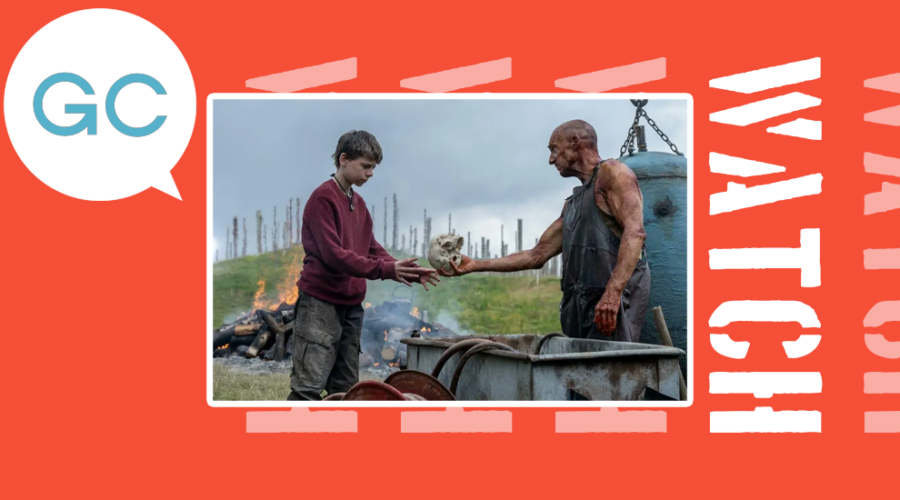In 2002, 28 Days Later rampaged roughshod over our screens in a bloody, ghastly rage, fuelled by 9/11, the Invasion of Afghanistan, the War on Terror, and the growing threat of an illegal war with Iraq based upon spurious evidence that Saddam Hussein was amassing weapons of mass destruction.
The post-election euphoria of Tony Blair and New Labour’s historic win in 1997 was about to crash spectacularly like the mother of all comedowns.
28 Years Later emerges from the death throes of our sweltered isle being ripped from the exasperated womb of the European Union and strangled by our own umbilical cord of hate, rage bait, extremism, and rampant online misogyny.
The Rage Virus has been repelled and rejected by Europe leaving the rotting corpse of the unsinkable aircraft carrier hung from the battlements of our own hubris as a stark warning, the folly of believing the lies of unelected media (social and otherwise) barons and the fake online news of our post-truth reality.
Listen carefully and you can hear the doom-laden creak of the rope throughout the film as the corpse swings in the fevered heat of global events. Don’t be fooled, we are already in the preliminary stages of World War Three, just thank your lucky stars M.A.D exists (for now) and you are not in Ukraine, Gaza, Israel, or Iran or any of the other countless warzones that have dropped off the media’s short attention span radar. Look at the Sunday morning reprimands and recriminations facing Kneecap and Bob Vylan after their performances at the capitalist music juggernaut Glastonbury that does a barely credible sideline masquerading as a bastion for free critical thinking.
The United Kingdom, now isolated from the world and incessantly patrolled by gun boats to stop any infected from escaping, has regressed into an island where the little Englander myths perpetuated since the victory of World War 2 and the loss of empire are allowed to run rampant and unchecked.
Survivors clustered together in the tidal island of Lindisfarne dream of Henry V and Agincourt, longbows drawn, repelling invaders from the mainland, ironic when that mainland is the emerald – green Arthurian Albion that seeded those opium dreams in the first place.
Danny Boyle and Alex Garland are even more vital than they have been since the early years of the millennium. Their film distils the fear and loathing that has consumed our country over the last decades and that has become a Russian Doll of racist, backward rhetoric. The Conservatives begat Ukip, who begat the Brexit Party, who begat Brexit, which birthed Reform UK.
Each incarnation of post-Tory toxicity has backed us into ever decreasing circles of hell where we devour one another constantly until we are the sole drunk left at the party arguing bitterly with an echo in a room stinking of vomit and excrement.
And yet, like Perseus cast to sea in a wooden chest to be found and raised on the Island of Seriphus to later become a hero and king, there is hope. 12-year-old Spike rejects the masculine lies spun by his father and the inhabitants of Lindisfarne about his exploits on the mainland. Those lies are overseen by a portrait of the Queen, her motto “Never complain, never explain” only partially intact in this alternative timeline where time stood still in 2002.
Spike is curious about why a fire should burn in the distance, curious about a deranged man of science that builds towering monuments to the dead, one third Damien Hirst, one third Colonel Kurtz, one third Leonard Rossiter, curious about the nature of his mother’s malaise. He has outgrown his petty cage and yearns for the call of adventure amongst the ruins of a bygone age, one haunted by the shell of Happy Eater restaurants, Teletubbies, and the unknown menace of Jimmy Savile hiding in plain sight.
That 28 Years Later was released at the same time as Adam Curtis’ equally foreboding documentary series Shifty about living in Britain at the end of the 20th Century screams volumes about the physical, psychological, and spiritual decay of our nation.
Whereas Curtis weaves his narrative through a collage of seemingly unrelated archival footage, Boyle and Garland remind us of very British post-apocalyptic fiction like Day of The Triffids and Survivors, yet both are chillingly in tune to the realisation that we have been existing in a dystopia for the last half a century.
Two lesser-known British post-apocalyptic touchstones spring to mind: The Tower King, a comic strip written for the early 1980s revival of Eagle where survivors of a catastrophic event use the Tower of London as a base; and Michael Moorecock’s The History of the Runestaff that depicts a far-future world in which the insane rulers of the Dark Empire of Granbretan are engaged in conquering the continent during the Tragic Millennium.
In 2025, it is very clear that the millennium so far has been nothing except tragedy heaped upon tragedy of our own making. Let’s hope the healthy scepticism and heroism of kids like Spike redress the balance.

